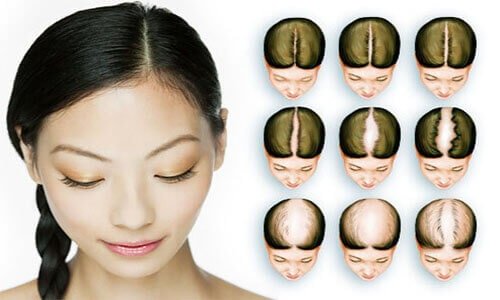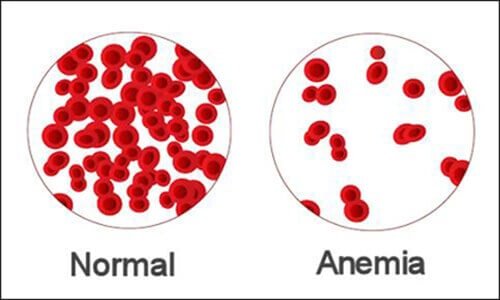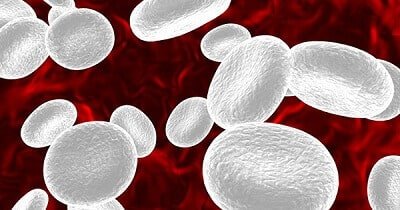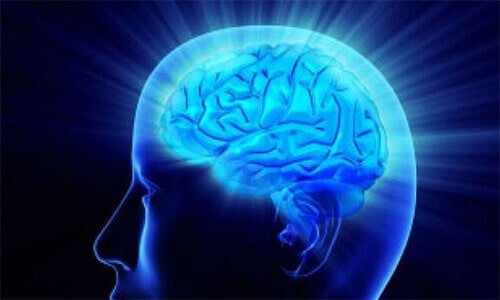Chemotherapy is accompanied with side effects.
Now the question arises what are the chemotherapy side effects which lies in the mind of most of the people. To each person, side effects are different.
We have listed down all the side effects caused by chemotherapy.
1. Vomiting and Nausea

Approximately, 70 percent of the patients suffer from vomiting and nausea. This is because of the fact that chemotherapy affects parts of the brain and stomach that detect toxic substances.
So, the body tries to get rid of toxins and hence vomiting and nausea is caused. To avoid vomiting and nausea, anti-vomiting/nausea medicines are prescribed.
There are certain types of nausea and vomiting :
- Acute nausea and vomiting: This generally lasts a few minutes to few hours after the chemotherapy treatment. It generally goes away within 24 hours.
- Delayed nausea and vomiting: This is caused generally after the 24 hours of the chemotherapy. This may last upto 5-7 days.
- Anticipatory nausea and vomiting: Anticipatory nausea and vomiting is a result of the experience of the previous chemotherapy that led to nausea and vomiting. The brain anticipates that vomiting and nausea will happen again from its past experience. So before the chemotherapy is given, the person actually starts to experience nausea and vomiting.
- Breakthrough nausea and vomiting: The nausea and vomiting occur even after the consumption of drugs that avoid nausea and vomiting. This is breakthrough nausea and vomiting .
2. Hair Loss

Here’s the scary part:
Chemotherapy drugs are very strong medications which attack fast growing cells. These drugs also attack other fast growing cells in your body which also include the one present in the hair roots. Hence, chemotherapy causes hair loss.
Sometimes, you may lose hair from your eyebrows, eyelashes, armpits, etc. also. The hair loss is temporary, and a patient can grow back his/her hair within three to six months after the treatment ends.
Ways to manage:
Before hair loss:
Do:
- You should cut your hair short.
- While washing your hair use a mild shampoo such as a baby shampoo.
Don’t:
- Hair straightener or curling iron
- Hair clips
- Hair dyes or hair sprays
After hair loss:
- You need to protect your scalp.
- Satin pillow can be used for sleeping as they are more comfortable in sleeping as compared to cotton.
- You should stay warm as after you lose hair, you may feel cold.
3. Fatigue

Fatigue is one of the most common side effect seen in the patients. It affects approximately 70% to 80% of the patients. It is caused due to the direct effect of chemotherapy. It is also caused due to anaemia as chemotherapy destroys too many red blood cells.
Fatigue is worst for people who are old, who are going through advanced cancer stages and who are going through combination of treatments such as radiotherapy and biological therapy. Fatigue is also caused by :
- Appetite changes
- Infection
- Lack of sleep
- Lack of activities
- Medicines
Ways to manage:
- Sleep atleast 8 hours: You should sleep minimum for 8 hours. It will help you relax and you won’t be experiencing fatigue.
- Be active: You should perform basic exercises as they ease the fatigue and also helps a person to sleep well.
- Relax: Try to meditate, pray, do yoga to relax your body and make it stress free.
- Avoid doing too much: If you are experiencing fatigue, then you will not have much energy to do all the things that you wish to do. So avoid too much of work and ask your friends or family for help.
- Have proper diet: Have a proper balanced diet. Prefer small meals so that the food is properly digested. Have lots of fluid intake and keep your body hydrated.
- Plan schedule of work: If you are working, then plan your work schedule properly. There will be days when you have large amount of work and there will be days when you barely have work. So plan in such a way that you are not over - burdened with work.
4. Anaemia or low red blood cells

The function of red blood cells is to carry oxygen in your body. Anaemia is a condition when you have few red blood cells to carry oxygen throughout the body. It is caused as chemotherapy can kill cells which make red blood cells in the bone marrow. Anaemia can make you feel dizzy, tired, faint or feeling of breathlessness.
Ways to manage:
- You need to take atleast 8 hours of sleep each night.
- Have a balanced diet that contains proteins, iron and calories.
- You should minimize your activities.
- If red blood cells count is too low then blood transfusion is done.
5. Bowel problems

Diarrhea is one of the common side effects of chemotherapy. Chemotherapy can damage the cells which are present in the lining of the digestive tract and hence diarrhea is caused. Constipation is also caused at times due to the medicines. If a person is inactive and is not doing any physical work, then also constipation can be caused.
Ways to manage:
In case of constipation:
- You should drink lots of fluids in a day.
- You should be active. You can remain active by walking, riding or performing yoga. If you are not able to walk, then you can ask your doctor to suggest some bed exercises.
In case of diarrhea:
- Instead of having large meals, eat 5-6 small meals in a day.
- Avoid food that is high in fibre as they make diarrhea worse.
- Intake food that is high in salts as your body can lose these salts during diarrhea.
Avoid:
- Drinks that are extremely cold or hot.
- Any type of alcohol.
- Foods that have caffeine such as black tea, coffee, etc.
- Fried foods like french fries, chips, etc.
- Spicy food.
6. Fertility problems

Many patients lose interest in sex during chemotherapy. Chemotherapy can also reduce fertility in women and men. In case of woman, it means that you may not become pregnant as chemotherapy can damage the ovaries.
In case of man, it means that you may not be able to father a child as chemotherapy may damage your sperm cells. After the treatment ends, fertility returns back for some but not for everyone.
Also, getting pregnant during cancer must be avoided as chemotherapy drugs may cause congenital disabilities.
Ways to manage:
For Women:
- If you want to have children in future, you can preserve your eggs and use it in future.
- Keep in mind that you must never get pregnant during chemotherapy as chemotherapy can destroy the foetus. Use birth control pills to avoid such situation.
- In case you are pregnant, then ask your doctor for alternate options.
For Men:
- If you want to have children in future, you can preserve your sperms and use it in future.
- Your partner should not get pregnant during the chemotherapy treatment as it can cause birth defects.
7. Appetite loss

Unfortunately: Chemotherapy affects the metabolism of the body thus causing loss of appetite and weight loss. Nausea and vomiting, mouth sores, throat problems make it painful to eat thus causing appetite loss.
Appetite changes are also caused due to tiredness and depression. The drugs make you lose taste for food which can result in appetite loss.
It is important that you eat well as it will help fight infections and repair tissues.
Ways to manage:
- By taking frequent small meals you can maintain the nourishment needed by the body.
- Have a proper schedule for your meals.
- If you do not feel like eating solid foods then you can go for liquid foods like milkshakes, juices, smoothies, etc.
- If you are eating alone, then you may watch T.V. or listen to music.
- Talk to your doctor. He may ask you to take vitamins and nutrients.
8. Bleeding problems and low blood platelet count
Another side effect caused due to chemotherapy is low blood platelets count. This condition is also called Thrombocytopenia. A low blood platelets count leads to bleeding and bruises. This condition can cause bruises even when
Ways to manage:
Do:
- Use a soft toothbrush to brush your teeth.
- You can make the bristles of the toothbrush soft by running hot water on it before brushing the teeth.
- Instead of using razor, use an electric shaver.
- Wear slippers or shoes all the time.
- Deal with sharp objects like scissors, knives, etc. very carefully.
- You should blow your nose very gently.
Don't:
- Never use toothpicks or dental floss.
- Do not wear tight clothes.
- Do not play any sport in which you can get hurt.
9. Skin and nail changes

Chemotherapy can cause nails to become brittle and flaky. Further, the skin becomes dry and oversensitive to the sunlight. The changes can be minor or major.
Minor skin changes include:
- Hyperpigmentation: Hyperpigmentation is a condition in which skin patches become darker than the normal surrounding skin. Dark patches may occur at various places like the joints area, under your nails, in the mouth, etc.
- Itching, dryness and redness of the skin
- Sensitive to the sun: Sensitivity of the skin towards the sun causes skins burns very quickly.
- Nail problems: The nails may turn dark, yellow or brittle.
Major skin changes include:
- Some skin changes are caused as you may be allergic to chemotherapy. You should inform your doctor if such allergies appear on the skin.
- If you have a burning sensation or pain while chemotherapy, then inform your doctor immediately as there may be a chance that your chemo is leaking from the IV.
Ways to manage:
Itching, dryness, redness of the skin
- Prefer taking quick bath rather than long bath.
- Use a mild soap.
- Do not use perfume, deodorants or cologne.
- After bathing, do not rub rather pat.
- Ask your doctor if there is any particular soap to use.
Sensitivity to the sun
- Avoid direct sunlight.
- Use sun protection cream or lotion while going in the sun.
- Wear light coloured clothes.
Nail problems
- Wear gloves while washing clothes or utensils.
10. Low white blood cell count

Strong chemotherapy results in low white blood cell count. It weakens immune system and increase the risk of certain types of infection. This condition is called Neutropenia. Antibiotics may help in reducing the risk of developing infections.
Ways to manage:
- Stay away from sick people: You should stay away from sick people who are suffering from communicable diseases like flu, chicken pox, cold, etc.
- Wash your hands very often: Wash your hands with the soap and water frequently. You should carry hand sanitizer along with you.
11. Thinking and memory problems

Some chemotherapy treatments are linked to problems in learning, thinking and memory. This side effect is also known as “Chemo brain.” For some patients these side effects even continue after the treatment ends. This can be minimized by getting plenty of sleep, making list of tasks and minimizing distractions while completing a task.
12. Mouth and throat changes

Chemotherapy can harm the cells of the inner lining of your mouth, lips and throat. Hence, this can create following problems:
- Dryness of the mouth
- Sensitivity increases to hot or cold foods
- Changes in the taste of the food like metal taste, chalk taste or no taste
- Infections in the gums, tongue and teeth
- Mouth sores are caused
- Due to mouth sores, there is problem in eating food
Ways to manage:
- Always keep your mouth moist: Keeping your mouth moist will solve the problem of dryness. You can keep it moist by having water throughout the day and by sucking sugar free candies.
- Clean your mouth, teeth and tongue: You should brush your teeth after every meal and also before going to bed. Use a toothbrush that has soft bristles. Rinse your mouth 3-4 times in a day.
- Measures to be followed during mouth sores: Take small bites of food and sip water along with it. Use a blender to process the food so that it is easy to eat. Avoid food that is hot as it can hurt your mouth and tongue. You should prefer food that is easy to chew and swallow. Avoid hard and spicy food. Abstain from any sort of alcohol. Avoid products that contain tobacco like cigarettes, cigars and chewing tobacco.
13. Nervous system changes
Chemotherapy may cause damage to the nervous system as well. The symptoms of which are :
- Tingling and burning sensation
- Dizziness
- Loss of memory
- Trembling or shaking experience
- Losing your balance
- Problem in picking up objects
- Depression
Ways to manage:
- Avoid falling: You should walk slowly. Hold on to the handrails in climbing the stairs. You can use a stick if there is trouble in walking without support.
- Rest: Give enough rest to your body.
- Consult your doctor: Do let your doctor know if you experience any nervous system changes or loss of memory.
When to call your doctor?
- The body temperature is over 100 degrees.
- Body chills
- Sores in the mouth and lips
- Bruising or bleeding in the body
- Weight loss of 2kg or above
- Extreme diarrhea or constipation
- Pain during urination
- Severe headache
- Blood in the stool
- Frequent vomiting
- Shortness of breath
- Irregular heartbeat






